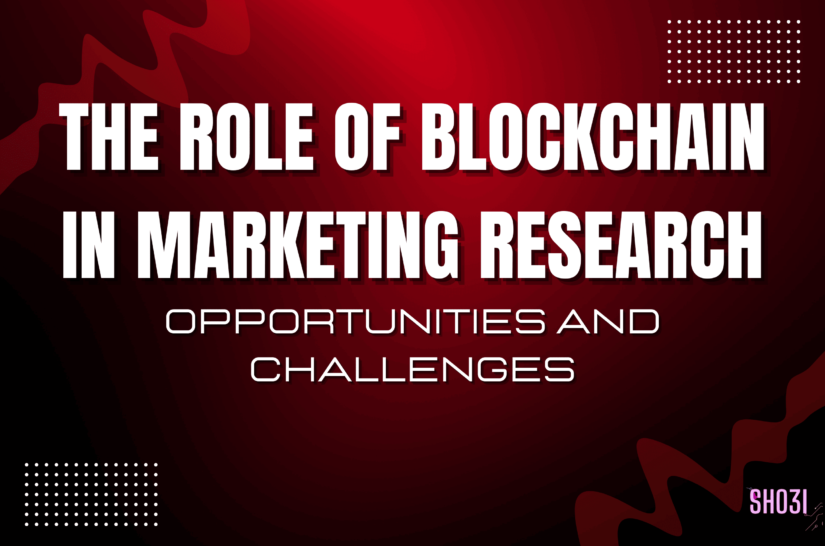The Role of Blockchain in Marketing Research: Opportunities and Challenges
Marketing research plays a crucial role in helping businesses understand their customers and make informed decisions about their marketing strategies. With the emergence of blockchain technology, marketing researchers have an opportunity to collect, store, and analyze data in a secure and transparent manner. In this article, we will explore the role of blockchain in marketing research, its opportunities, and challenges.
What is Blockchain?
Blockchain is a decentralized, distributed ledger that records transactions in a secure and transparent manner. Each block in the chain contains a unique code, timestamp, and transaction data, and once added to the chain, it cannot be modified or deleted. Blockchain technology offers several benefits for marketing research, including:
Security: Blockchain technology uses cryptography to secure transactions, making it virtually impossible to hack or manipulate.
Transparency: Blockchain technology allows for transparent and verifiable transactions. It eliminates the need for intermediaries and provides a decentralized platform for businesses to communicate with their customers.
Decentralization: Blockchain technology is decentralized, meaning there is no central authority controlling the data. This makes it difficult for hackers or malicious actors to manipulate the data.
Opportunities of Blockchain in Marketing Research
Blockchain technology offers several opportunities for marketing research, including:
Data Collection: Blockchain technology can be used to collect data in a secure and transparent manner. Researchers can use blockchain to collect data directly from customers, eliminating the need for intermediaries.
Data Storage: Blockchain technology can be used to store data securely and transparently. This ensures that the data is accurate and tamper-proof.
Data Sharing: Blockchain technology allows for secure and transparent data sharing between different stakeholders. This can be useful for collaborative research projects or sharing data with customers.
Smart Contracts: Smart contracts are self-executing contracts that automate the negotiation and fulfillment of agreements. Blockchain technology can be used to create smart contracts that automate the data collection and analysis process.
Challenges of Blockchain in Marketing Research
While blockchain technology offers several opportunities for marketing research, there are also several challenges that must be considered, including:
Cost: Implementing blockchain technology can be expensive, particularly for small businesses. The cost of implementing and maintaining the technology may outweigh the benefits for some businesses.
Complexity: Blockchain technology is complex, and it may require specialized skills and expertise to implement and maintain.
Privacy: While blockchain technology offers transparency and security, it may also raise privacy concerns. Businesses must ensure that they are collecting and storing customer data in a manner that is compliant with privacy regulations.
Adoption: Blockchain technology is still relatively new, and adoption rates may be slow. This may limit the availability of data for marketing research purposes.
Strategies for Using Blockchain in Marketing Research
Now that we understand the opportunities and challenges of using blockchain in marketing research, let’s explore some strategies for effectively leveraging this technology:
Start Small: Begin by experimenting with blockchain technology on a small scale. This will allow you to test the technology and identify any potential challenges or issues.
Partner with Blockchain Experts: Partner with blockchain experts who have the necessary skills and expertise to help you implement and maintain the technology.
Focus on Data Security and Privacy: Ensure that you are collecting and storing customer data in a secure and compliant manner. This will help build trust with your customers and ensure that your data is accurate and reliable.
Use Smart Contracts: Use smart contracts to automate the data collection and analysis process. This will help streamline the research process and ensure that the data is accurate and reliable. Collaborate with Other Stakeholders: Collaborate with other stakeholders, such as customers and industry partners, to collect and share data in a secure and transparent manner. This will help build credibility and trust with your stakeholders.

